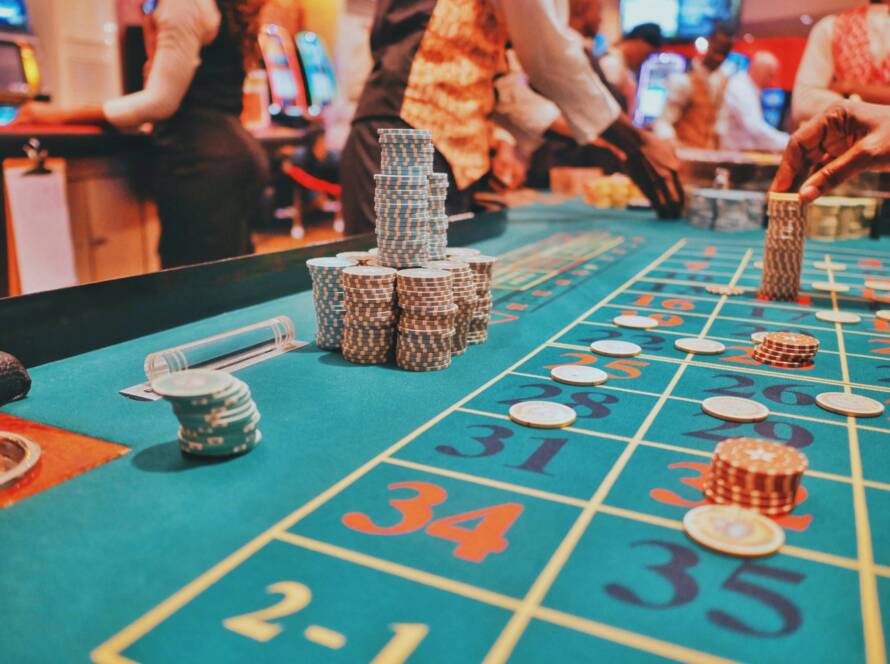Risk assessment is a skill that transcends industries and disciplines. Whether you’re an entrepreneur making tough business decisions, an investor eyeing the stock market, or simply managing your personal finances, understanding risk—and how to assess it accurately—is crucial. Interestingly, one of the best training grounds for mastering risk assessment lies in the world of professional poker.
Professional poker players risk management is more than just luck; it’s a calculated science driven by probability, psychology, and strategic thinking. Poker pros risk assessment skills have much to teach us about making better decisions under uncertainty . In fact, many finance professionals, including investment bankers and stock traders, leverage poker skills business world strategies to sharpen their risk evaluation and decision-making abilities.
In this post, I’ll walk you through 12 essential questions that every good risk assessment should answer, inspired by poker wisdom. These questions, when properly addressed, can transform your approach to risk—from personal finance to business strategy and investing. Along the way, we’ll explore poker lessons for entrepreneurs, how poker math real life investments, and why poker players are so good at risk.
1. What Is the True Probability of the Outcome?
One of the core poker risk assessment lessons is understanding and calculating probabilities accurately. Poker players constantly assess the likelihood of winning a hand based on the cards they hold and the cards on the table. This poker probability investing mindset is invaluable for real-world investments or business decisions where outcomes are uncertain.
Many people struggle with risk assessment because they misjudge probabilities—often overestimating rare events or underestimating common ones. The poker approach to money management teaches us to base decisions on sound probability rather than gut feelings or wishful thinking.
2. What Are the Potential Gains and Losses?
In poker, every move is evaluated not just by the odds of winning, but also by the size of the pot and the potential payoff. Similarly, in business or investing, understanding both upside and downside is critical. Calculated risk poker strategies emphasize weighing potential rewards against risks before committing resources.
For example, when applying poker odds to stocks, investors should look beyond the probability of success and consider the scale of impact. This clarity helps avoid poor risk evaluation skills that plague many decision-makers.
3. How Quickly Can I Calculate Risk? (Speed Matters)
Poker players calculate risk quickly in dynamic environments. Fast risk calculation poker skills enable them to stay ahead of opponents and make timely decisions. This quick-thinking ability is crucial in the real world, where delays can cost opportunities or increase exposure to risk.
Improving your poker quick risk assessment skills through practice can help you react faster and more confidently to emerging challenges in business or personal finance.
4. Am I Confusing Gambling with Calculated Risk?
A common risk assessment mistake is treating all risk as gambling. But there’s a big difference between gambling and smart risk-taking. Calculated risk vs pure gambling is a fundamental distinction that poker teaches well. Poker pros risk assessment skills revolve around making decisions based on expected value and probability, not just chance.
Understanding this difference can help you avoid risk assessment common mistakes like reckless speculation or overleveraging.
5. What Are the Worst-Case Scenarios, and Can I Handle Them?
Professional poker players always consider the downside. Poker risk management techniques include planning for the worst-case outcomes and ensuring they have the bankroll or resources to survive losses. This poker risk mindset personal finance approach is essential for anyone managing money or business risks.
Failing to account for worst-case scenarios leads to poor risk evaluation skills and can cause catastrophic failures.
6. How Do Emotions Affect My Risk Assessment?
Emotions can cloud judgment, leading to rash decisions or risk aversion. Poker wisdom tough choices include recognizing when emotions interfere with rational risk assessment. Good players practice emotional control and stick to strategy rather than chasing losses or becoming overly cautious.
Learning from poker mistakes teaches us that emotional discipline is key to consistent, objective risk assessment.
you know,
7. Can I Use Historical Data to Improve My Risk Assessment?
Successful poker players learn from past hands and patterns. Similarly, good risk assessment involves analyzing historical data and trends. This poker lessons life decisions approach ensures you don’t repeat errors and can anticipate probable outcomes.
Investment bankers play poker not just for fun but because the skills transfer to analyzing financial data and market behavior.
8. How Does My Risk Assessment Compare to Traditional Models?
Poker risk assessment vs business risk models highlights a crucial insight: poker often incorporates psychological and situational factors that traditional risk models might overlook. Poker better than risk models in some ways because it accounts for human behavior, incomplete information, and bluffing.
Understanding this gap can help you blend quantitative models with qualitative insights for superior risk management.

9. Am I Recognizing When I or Others Have Poor Risk Evaluation Skills?
Why people bad at risk assessment is a question poker players can answer well. Many people fall prey to cognitive biases or overconfidence, leading to poor decisions. Bad poker players risk lessons show how ignoring probability or emotional control https://www.gambling911.com/poker/risk-assessment-101-what-poker-can-teach-about-calculated-risks-061125.html causes losses.
Teaching kids risk assessment poker style, for example, helps build foundational skills early, reducing common adult risk assessment errors.
10. How Can I Apply Poker Strategies to Financial Decisions?
Poker strategies financial decisions include concepts like pot odds, implied odds, and positional advantage. These translate to investment timing, risk-reward analysis, and strategic negotiation in business.
Finance professionals poker players risk thinking differently, using these tactics to gain an edge in markets and negotiations.
11. What Role Does Negotiation Play in Risk Assessment?
Negotiation tactics from poker are invaluable when assessing and managing risk in deals, partnerships, and hiring. Poker negotiation tactics teach patience, reading opponents, and knowing when to push or fold.
Applying these skills in job interviews or business negotiations can improve outcomes significantly.
12. How Do I Balance Intuition and Data in Risk Assessment?
Poker players often rely on both math and intuition. This balance is crucial in real-world risk management. While data-driven analysis grounds decisions, intuition informed by experience helps navigate uncertainty and incomplete information.
Better risk assessment through poker involves honing both analytical and intuitive skills.
Conclusion: Why Poker Improves Risk Assessment and Decision-Making
From poker math real life investments to poker mindset personal finance, the game offers timeless lessons on risk management. Poker players calculate risk quickly and accurately because they practice it constantly in a high-stakes environment. This ability to perform fast risk calculation poker-style is why many finance professionals and entrepreneurs seek to learn poker skills business world applications.

Moreover, poker teaches the difference between calculated risk and gambling, helping people avoid common mistakes in risk assessment. It also encourages emotional discipline, strategic planning, and continuous learning from failures—qualities essential for successful risk management.
Whether you’re an investor looking to apply poker odds to stocks, an entrepreneur learning poker lessons for children, or a professional aiming to improve risk evaluation, embracing poker’s approach to risk can give you a competitive edge. At its core, poker is about making informed decisions under uncertainty—a challenge we all face in life and business.
So next time you’re faced with a tough choice, ask yourself these 12 questions inspired by poker, and you’ll be well on your way to mastering risk assessment like the pros.


